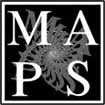From: The Psychedelic Salon
Mp3 Podcast: Download
(right click, save as)
Subscribe: HERE
PROGRAM NOTES:
[NOTE: All quotations below are by Terence McKenna.]
"What I’ve observed, and I think it’s fair to give credit to the psychedelic experience for this, what I’ve observed is that nature builds on previously established levels of complexity."
"This is a general law of the universe, overlooked by science, that out of complexity emerges greater complexity. We could almost say that the universe, nature, is a novelty-conserving, or complexity-conserving engine."
"If in fact the conservation and complexification of novelty is what the universe is striving for, then suddenly our own human enterprise, previously marginalized, takes on an immense new importance."
"Each stage of advancement into complexity occurs more quickly than the stage which preceded it. . . . Time is, in fact, speeding up."
"No one is in charge of this process, this is what makes history so interesting, it’s a runaway freight train on a dark and stormy night."
"Science is the exploration of the experience of nature without psychedelics. And I propose, therefore, to expand that enterprise and say that we need a science beyond science. We need a science which plays with a full deck."
"What is revealed through the psychedelic experience, I think, is a higher dimensional perspective on reality. And I use ‘higher dimensional’ in the mathematical sense."
Definition of ‘eschaton’: "Eschaton comes from the Greek word ‘echatos’, which just means the end."
"The ‘hard swallow’ built into science is this business about the Big Bang. … This is the notion that the universe, for no reason, sprang from nothing in a single instant. … Notice that this is the limit test for credulity. . . . It’s the limit case for likelihood."
"We’re not mere spectators, or a cosmic accident, or some sideshow, or the Greek chorus to the main event. The human experience IS the main event."
"Our culture takes us out of the body and sells our loyalty into political systems, into religions, into inanimate objects and machines, collections, so forth and so on. The felt experience of the body is what the psychedelics are handing back to us."
"[The psychedelic experience] is not a journey into the human unconscious, or into the ghost bards of our human civilization. It’s a journey into the presence of the Gaian mind."
"The world is not an unsolved problem for scientists or sociologists. The world is a living mystery."




